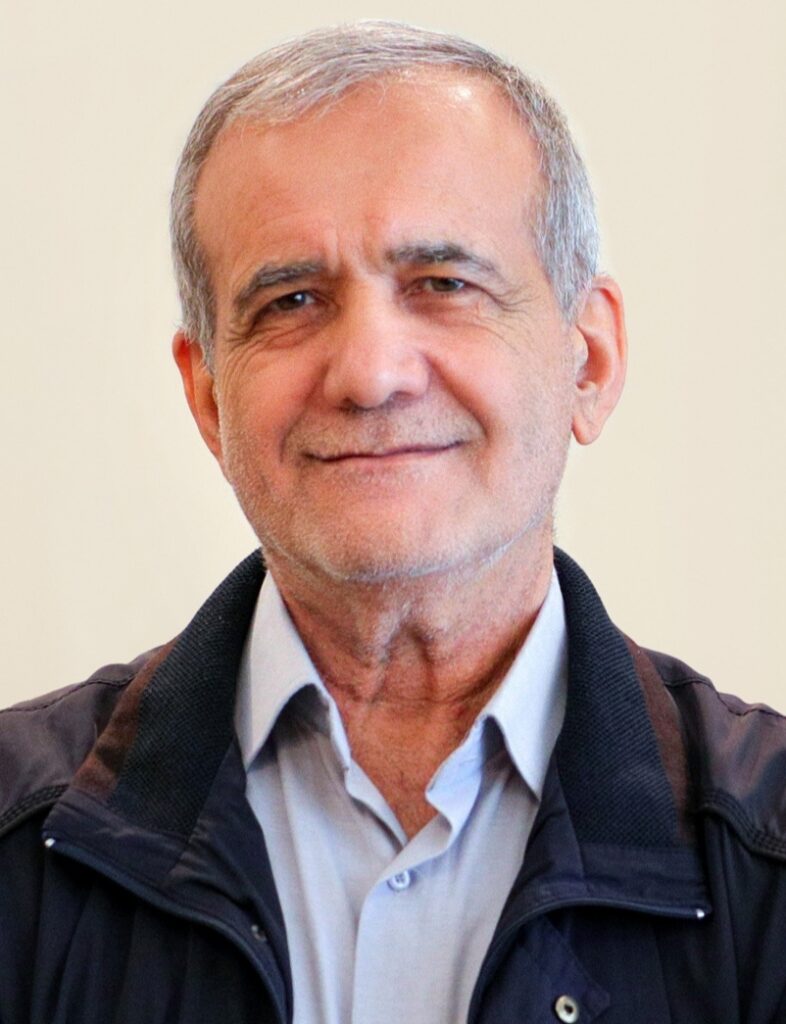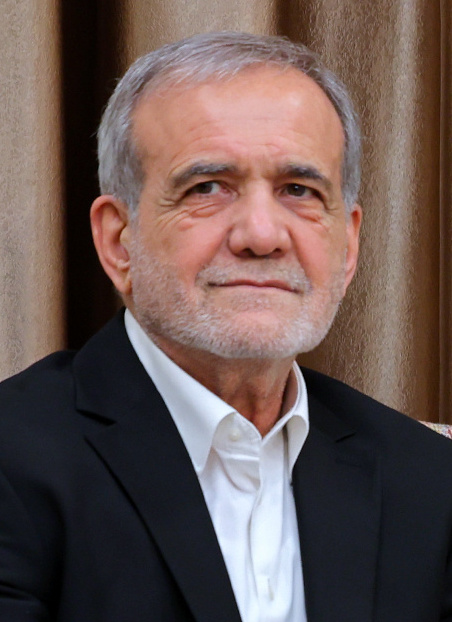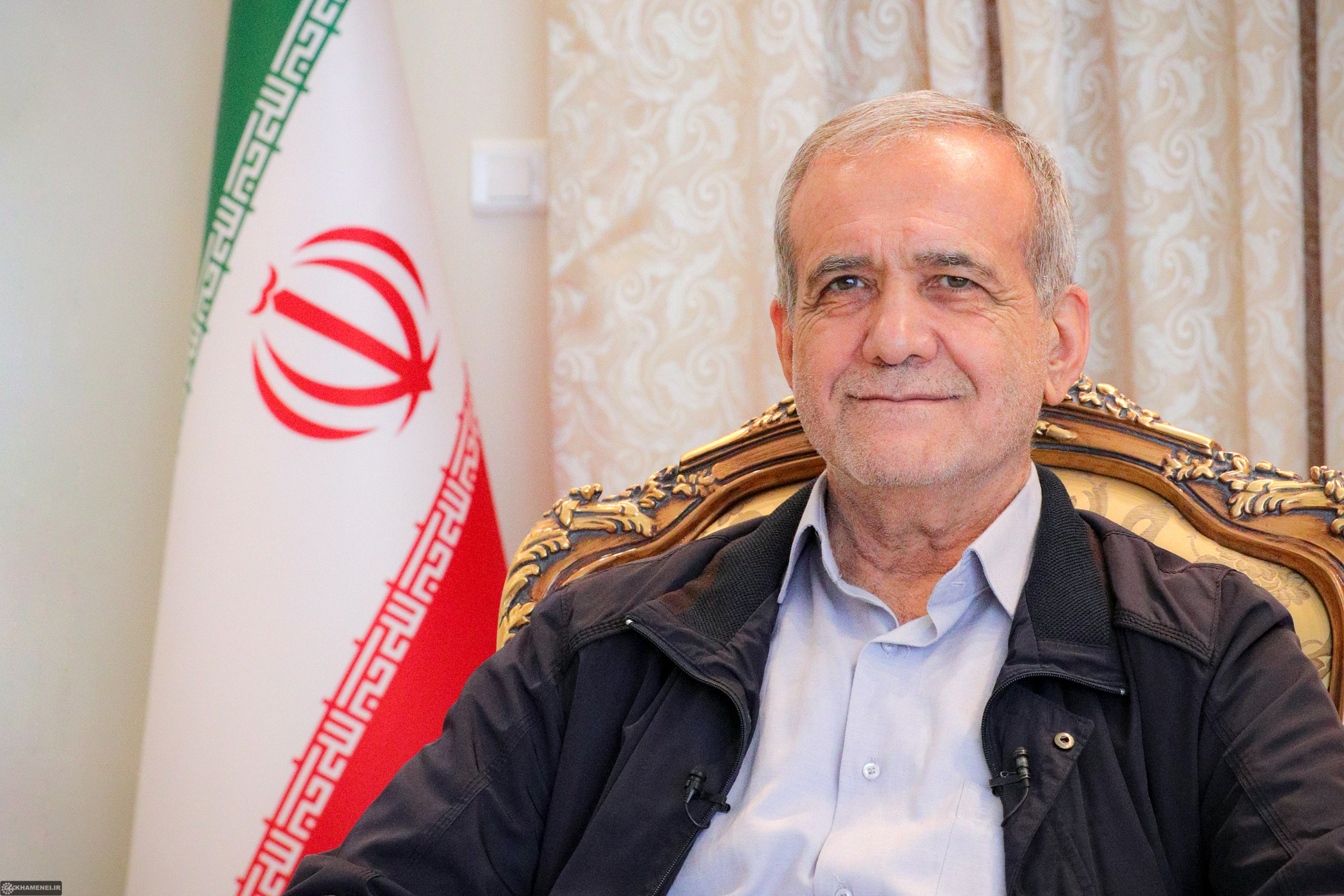In a defiant display of independence, Iranian President Masoud Pezeshkian has taken a firm stance against negotiating with the United States under conditions of coercion and threats. In a candid address that sent shockwaves through international diplomatic circles, Pezeshkian made it clear that any discussion with the US must be based on mutual respect and free from ultimatums. This statement comes on the heels of growing pressure from Washington, where President Donald Trump has been urging Tehran to strike a new deal on its nuclear programme—or face the threat of military action.
A Bold Rebuff to Coercion
During a recent meeting with Iranian producers and entrepreneurs, Pezeshkian delivered a message that resonated with defiance. “I’m not coming to negotiate with you at all. Go and do whatever damn thing you want,” he declared, underlining his refusal to be bullied into submission. His words encapsulated a broader rejection of any negotiation process that begins under orders or threats—a sentiment that directly challenges the recent US approach toward Iran. The remarks were as much about preserving national dignity as they were about rejecting external pressure, setting the stage for a redefined framework of international engagement that favors respect over coercion.
The Nuclear Programme and the Shadow of 2015
At the heart of this diplomatic impasse lies the controversial nuclear programme. Pezeshkian, a reformist leader elected amid domestic calls for modernisation, has long advocated for reviving the 2015 nuclear accord—a multilateral agreement once hailed as a landmark in global non-proliferation efforts. The accord, which was designed to curb Iran’s nuclear capabilities in exchange for economic relief and international recognition, collapsed following President Trump’s unilateral withdrawal in 2018. This move not only dismantled the framework for international cooperation but also left Iran in a precarious position vis-à-vis global nuclear governance.
By championing the revival of the 2015 accord, Pezeshkian signals his willingness to reengage with the international community on the condition that discussions are free of coercion. For him, returning to the table is not about capitulation but about restoring a dialogue that respects Iran’s sovereignty. This stance, however, stands in stark contrast to the pressures emanating from Washington, where demands for a new deal have been coupled with veiled threats of military intervention.

US Pressure and the Threat of Military Action
President Trump’s recent communications have further complicated an already delicate situation. In a high-stakes move, Trump claimed he had written to Iran’s Supreme Leader, Ayatollah Ali Khamenei, urging Tehran to negotiate a new nuclear deal. The implicit threat of military action has only deepened Tehran’s skepticism about Washington’s intentions. Iranian leaders argue that such ultimatums undermine the trust necessary for any substantive diplomatic engagement.
The rhetoric from Washington, which includes suggestions of “maximum pressure” and military repercussions, has not only inflamed tensions but also reinforced Iran’s resolve to avoid negotiations under any circumstances that imply submission or humiliation. As Pezeshkian emphatically stated, negotiations conducted under threat are unacceptable, marking a clear departure from past approaches that might have accommodated external pressure in the interests of reaching a compromise.
The Role of Iran’s Supreme Leader and Government Officials
While Pezeshkian’s remarks have captured headlines, they are part of a broader consensus among Iran’s top leadership. Ayatollah Ali Khamenei, who holds ultimate authority in Iran, has been equally uncompromising. In February, Khamenei dismissed the notion of negotiating with the US as “unwise,” pointing to Washington’s withdrawal from the original nuclear agreement as evidence of its unreliable approach. This sentiment was echoed recently by Iranian Foreign Minister Abbas Araghchi, who warned that Tehran would not enter direct talks with Washington as long as the US persisted with its policy of maximum pressure and threats.
For Iranian officials, the demand for a new nuclear deal is intertwined with the need to restore a sense of national pride and autonomy. They argue that any negotiation that begins under duress not only compromises Iran’s security but also sets a dangerous precedent for international diplomacy. The insistence on respectful engagement is seen as essential for maintaining the credibility of Iran’s foreign policy and safeguarding its interests in an increasingly multipolar world.
Reasserting National Sovereignty in a Global Context
Iran’s steadfast refusal to negotiate under threat reflects a broader desire to reclaim its agency on the world stage. For many Iranians, the call for global engagement is not about isolating the nation but about asserting that diplomacy must be a two-way street—one built on mutual respect and devoid of intimidation. Pezeshkian’s candid remarks underscore a fundamental principle: Iran is willing to engage with the world, but only on its own terms.
This perspective resonates with a significant segment of the Iranian population, particularly those who view the nation’s nuclear programme not as a threat, but as a symbol of technological progress and national pride. In this light, the pursuit of a new nuclear deal is seen as a path to economic revitalisation and technological advancement, rather than as a capitulation to external demands. By insisting on negotiations free from humiliation, Iranian leaders are setting a precedent for how nations can engage in international diplomacy without sacrificing sovereignty.
The Implications for Regional Stability

The implications of Iran’s rejection of threat-laden negotiations extend far beyond bilateral relations with the United States. The Middle East, already a region marked by longstanding conflicts and delicate alliances, could see significant shifts in power dynamics as a result of this diplomatic standoff. Regional players are closely watching Iran’s response, weighing the potential for a resurgence in its diplomatic assertiveness against the risks of escalating tensions.
In an environment where military threats and coercive tactics have become common, Iran’s decision to reject such approaches may encourage other nations to adopt a similar stance. This could lead to a broader realignment in international relations, where the focus shifts from power politics and pressure tactics to dialogue and mutual respect. However, this optimistic scenario hinges on the willingness of all parties, including the US, to recalibrate their strategies and embrace a more cooperative form of diplomacy.
Economic Considerations and Global Repercussions
The stakes of the current diplomatic impasse are not solely political; they also carry significant economic consequences. The potential reactivation of the 2015 nuclear accord could pave the way for sanctions relief and increased international investment—a prospect that has long been a lifeline for the Iranian economy. Yet, these benefits remain out of reach as long as negotiations are marred by threats and coercive tactics.
Economic analysts warn that prolonged tension could exacerbate economic instability both within Iran and globally. For Iran, the continuation of a policy that prioritises coercion over genuine dialogue risks isolating the country from international markets and deepening its economic challenges. Conversely, a willingness on both sides to engage in respectful negotiations could unlock new opportunities for economic cooperation, benefitting not only Iran but also the broader global community.
The Future of US-Iran Relations
Looking ahead, the path to a renewed dialogue between the US and Iran remains fraught with uncertainty. For Pezeshkian and his supporters, the key to breaking the deadlock lies in eliminating the element of coercion from any negotiation process. They argue that true progress can only be achieved when both sides enter discussions with a commitment to mutual respect and a genuine willingness to compromise.
For the United States, the challenge will be to shift away from a strategy of maximum pressure and instead foster an environment conducive to constructive engagement. Such a change in approach would not only improve the prospects for reviving the nuclear accord but also contribute to stabilising an increasingly volatile international landscape. However, given the deeply entrenched positions on both sides, achieving this transformation will require significant political will and a reassessment of long-held assumptions about national security and diplomatic strategy.
Conclusion
Iran’s firm rejection of US talks conducted under orders or threats marks a pivotal moment in the evolving dynamics of international diplomacy. President Masoud Pezeshkian’s unambiguous declaration that Iran will not bow to humiliation sends a powerful message to both domestic audiences and the global community. It underscores the nation’s readiness to engage with the world—but only on its own terms.
As the debate over the future of the nuclear programme rages on, the insistence on respectful, pressure-free negotiations remains a critical benchmark for any prospective deal. The stakes are high: beyond the nuclear issue, the broader framework of international relations, economic stability, and regional security hangs in the balance. In an era characterized by uncertainty and rapid geopolitical shifts, Iran’s bold stance may well serve as a catalyst for rethinking how nations interact in a world where dignity and mutual respect are paramount.
Ultimately, while the door to renewed dialogue is not closed, it will only open under conditions that guarantee equal footing and the absence of coercive tactics. The coming months are likely to test the resilience of these principles, as both Iran and the United States navigate the treacherous waters of modern diplomacy. For now, Iran’s message is clear: global engagement is welcome, but only if it is free from the shadow of intimidation and the specter of humiliation.










